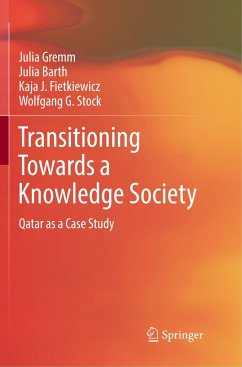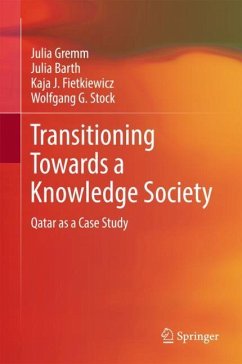
A New Arab Social Contract?
Institutional Perspectives for Economic Reform in Arab Countries
Versandkostenfrei!
Versandfertig in 6-10 Tagen
117,69 €
inkl. MwSt.
Weitere Ausgaben:

PAYBACK Punkte
0 °P sammeln!
This monograph offers a unique conceptual bridge between economic geography and Middle Eastern political economy. Arab economies are confronted with enormous structural difficulties such as high rates of youth unemployment in a challenging demographic context, exacerbated by intense spatial disparities. These structural problems demonstrate the breakdown of the "Arab social contract", a social arrangement centered on a strong role of the state in welfare and employment provision, for which regimes demanded acquiescence to authoritarian rule.The book argues that the Arab social contract can be ...
This monograph offers a unique conceptual bridge between economic geography and Middle Eastern political economy. Arab economies are confronted with enormous structural difficulties such as high rates of youth unemployment in a challenging demographic context, exacerbated by intense spatial disparities. These structural problems demonstrate the breakdown of the "Arab social contract", a social arrangement centered on a strong role of the state in welfare and employment provision, for which regimes demanded acquiescence to authoritarian rule.
The book argues that the Arab social contract can be understood in terms of regulation theories known in economic geography and sociology. It uses the approaches such as the regulation school, national systems of innovation, social systems of production, and varieties of capitalism to analyze the structural difficulties of Arab economies and current reform efforts. The basic assumption is that Arab economies are currently faced with a structural crisis. After the breakdown of the Arab social contract, there is a mismatch between the economic and institutional spheres of society. The challenge is for Arab societies to develop new forms of socio-institutional regulation.
The book proposes ways towards such new modes of regulation by developing a framework for regulation specifically targeted towards Arab societies, and by applying it to the cases of Tunisia and Jordan.
The book argues that the Arab social contract can be understood in terms of regulation theories known in economic geography and sociology. It uses the approaches such as the regulation school, national systems of innovation, social systems of production, and varieties of capitalism to analyze the structural difficulties of Arab economies and current reform efforts. The basic assumption is that Arab economies are currently faced with a structural crisis. After the breakdown of the Arab social contract, there is a mismatch between the economic and institutional spheres of society. The challenge is for Arab societies to develop new forms of socio-institutional regulation.
The book proposes ways towards such new modes of regulation by developing a framework for regulation specifically targeted towards Arab societies, and by applying it to the cases of Tunisia and Jordan.














